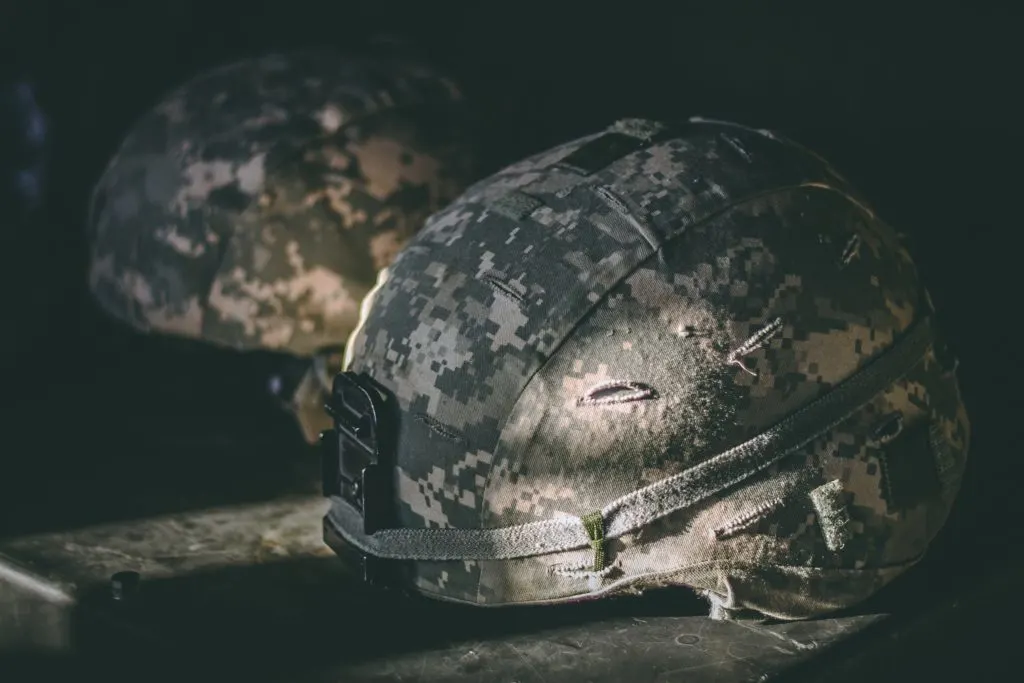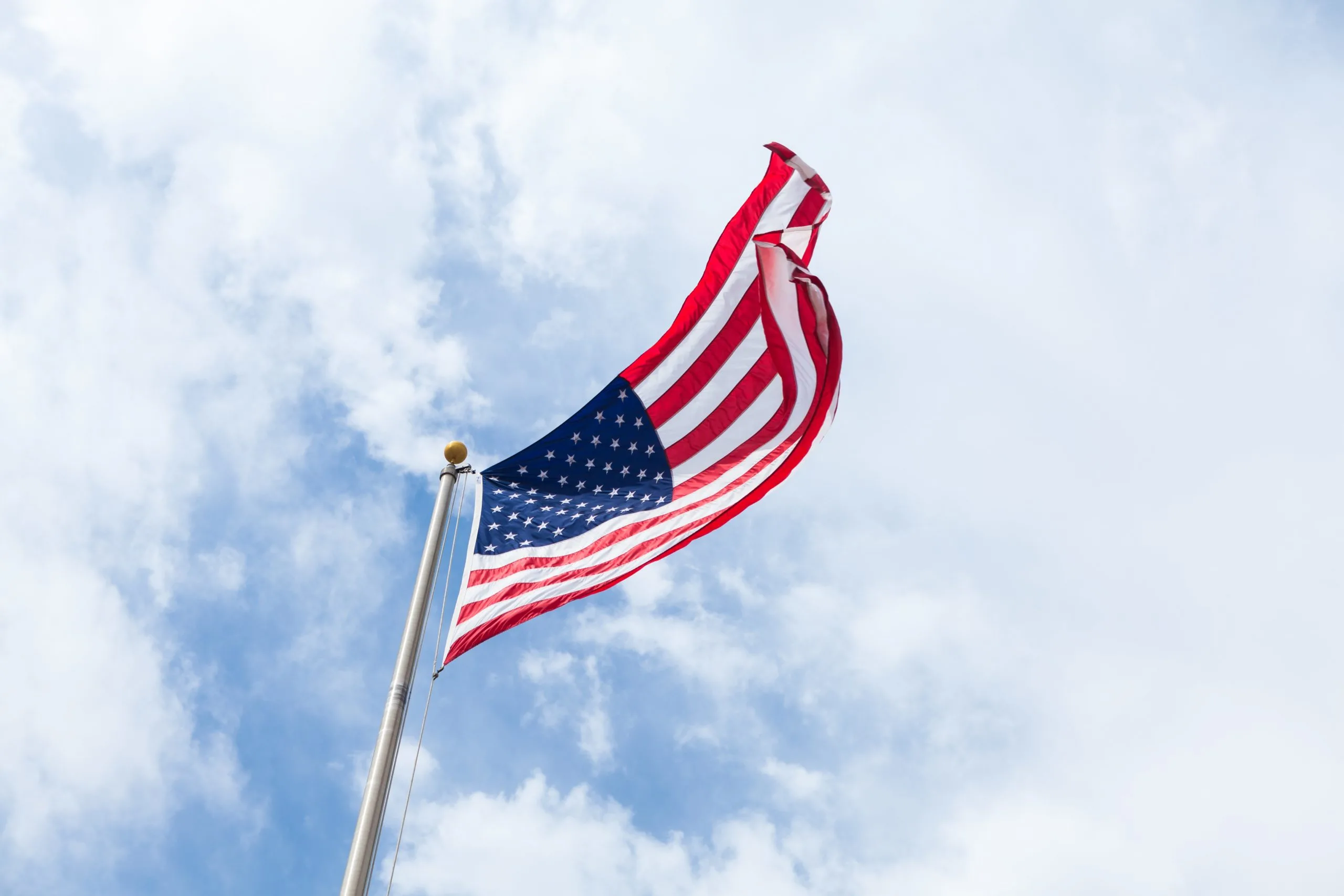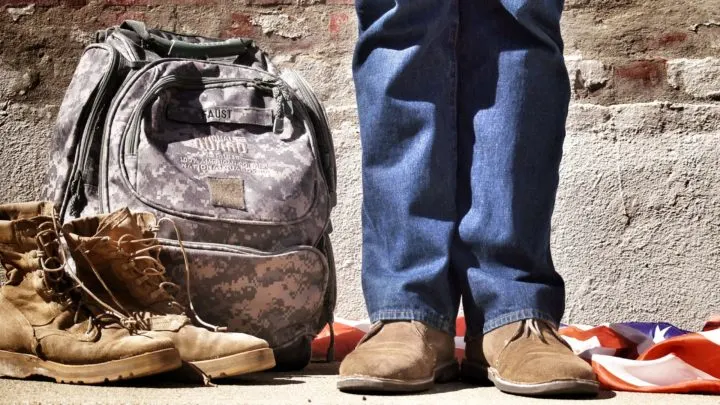Homeless veterans face many struggles, but we’re here to help! Despite service to their nation, homelessness among U.S. military veterans is unfortunately common in the United States.
Below, we discuss the challenges homeless veterans in the United States face, and share some of the resources that can help homeless veterans.

Homeless veterans in the U.S.
Veterans are about 50 percent more likely to become homeless than their American civilian peers, due to poverty, lack of support networks, poor living conditions, and mental and physical health challenges, according to the nonprofit Green Doors.
The Department of Veteran Affairs estimated that on any given night in 2010, there were roughly 76,000 homeless veterans sleeping on the streets of the United States. Homeless veterans are disproportionately reflected in homelessness data. While only about 8 percent of Americans claim veteran status, about 17 percent of the United States’ homeless population is made up of U.S. military veterans.
Perhaps just as concerning, roughly 1.5 million veterans are considered at-risk of homelessness as defined by being below the poverty level and paying more than 50 percent of household income on rent. Green Doors also reports that almost 468,000 veterans are severely rent-burdened and paying more than 50 percent of their income for rent.
Fortunately, data indicates that the homeless veterans’ situation is improving. The Department of Veteran Affairs estimates there were 37,085 veterans experiencing homelessness on any given night in January of 2019 — a 51 percent drop since 2010.

Why are so many veterans facing homelessness?
This is a complex, multifaceted answer, however, researchers have founds some risk factors that might indicate why so many veterans face homelessness.
It appears that the greatest risk factors for homelessness among U.S. veterans are lack of personal support and the social isolation they face after being discharged from the military. Green Doors notes that male veterans have low marriage rates and high divorce rates and that roughly 1 in 5 veterans is currently living alone.
As you might imagine, it can be extremely difficult and isolating to reacclimate to civilian life. Without a strong social network, many veterans fall into isolation, avoid family or friends, and thus put themselves at risk of exacerbating their challenges. Green Doors said that social networks are extremely important for veterans who have a crisis or need temporary help. Without intervention and help from others, these veterans are facing a high risk of homelessness.
Resources for Homeless Veterans
As we mentioned, there are a host of programs and organizations that can help homeless veterans. In this section, we’ll highlight several organizations, share a bit about what they do, and offer a way to contact them.
The Department of Veteran Affairs
The Department of Veteran Affairs, or simply the VA, has outlined a wide range of services for homeless veterans.
The organization says it’s committed to coordinated outreach to find veterans in need of assistance, connect them and other at-risk vets to housing solutions, and collaborating with federal, state, and local agencies to expand employment and affordable housing options for veterans exiting homelessness.
Veterans who are homeless or at imminent risk of homelessness are strongly encouraged to contact the National Call Center for Homeless Veterans at (877) 4AID-VET (877-424-3838) for assistance. The VA also offers a Veterans Crisis Line — simply call 1-800-273-8255.
Disabled American Veterans
A nationwide organization, Disabled American Veterans, or DAV, helps veterans and their families access the full range of benefits available to them, according to DAV’s mission statement. In 2017, DAV reported that it helped secure more than $4 billion in new and retroactive benefits to help veterans, their families, and survivors. DAV also promotes the development of supportive and affordable housing to assist homeless veterans in becoming self-sufficient.
Check out this page for more information on how to contact DAV.
The National Coalition for Homeless Veterans
The National Coalition for Homeless Veterans’ mission is simple: End homelessness among U.S. military veterans. The organization helps thousands of vets each year and serves as the resource and technical assistance center for a national network of community-based service providers to veterans around the U.S. This network provides a wide array of state and local services, including emergency and supportive housing, food, health services, job training and placement assistance, legal aid, and case management support.
Check out this webpage for more info on how to contact the National Coalition for Homeless Veterans.
Health Care for Re-Entry Veterans Program
Most veterans who’ve been imprisoned or jailed will reenter society and face challenges in finding the services they need. Health Care for Re-Entry Veterans aims to promote success and prevent homelessness among veterans returning home after incarceration.
Check out this webpage to get the contact information from a professional in your state.
U.S. Vets
Since 1993, U.S. Vets has helped to empower homeless and at-risk veterans to reach independence and offers specialized help to post-9/11 veterans, female veterans, and veteran families. The U.S. Vets organization is the United States’ largest nonprofit provider of services to homeless and at-risk veterans.
Check out this webpage to get the contact information for U.S. Vets. Or you can call (877) 5-4USVETS or (877) 548-7838.
Iraq and Afghanistan Veterans of America
The Iraq and Afghanistan Veterans of America, or IAVA, was founded by an Iraq war veteran to serve as an advocate leader and 1-on-1 case manager of at-risk or homeless veterans. The organization reports that it’s connected more than 1.2 million veterans with resources and community, as well as provided thousands of veterans with life-saving and life-changing support.
Check out this webpage to get the contact information to IAVA.
In Conclusion
While homeless veterans face significant challenges ranging from mental health to economic hardship, there are many good organizations and people that can help.
We hope through this article you’ve learned more about homeless veterans in the United States, the challenges they face, and more about the resources that homeless veterans can access.

